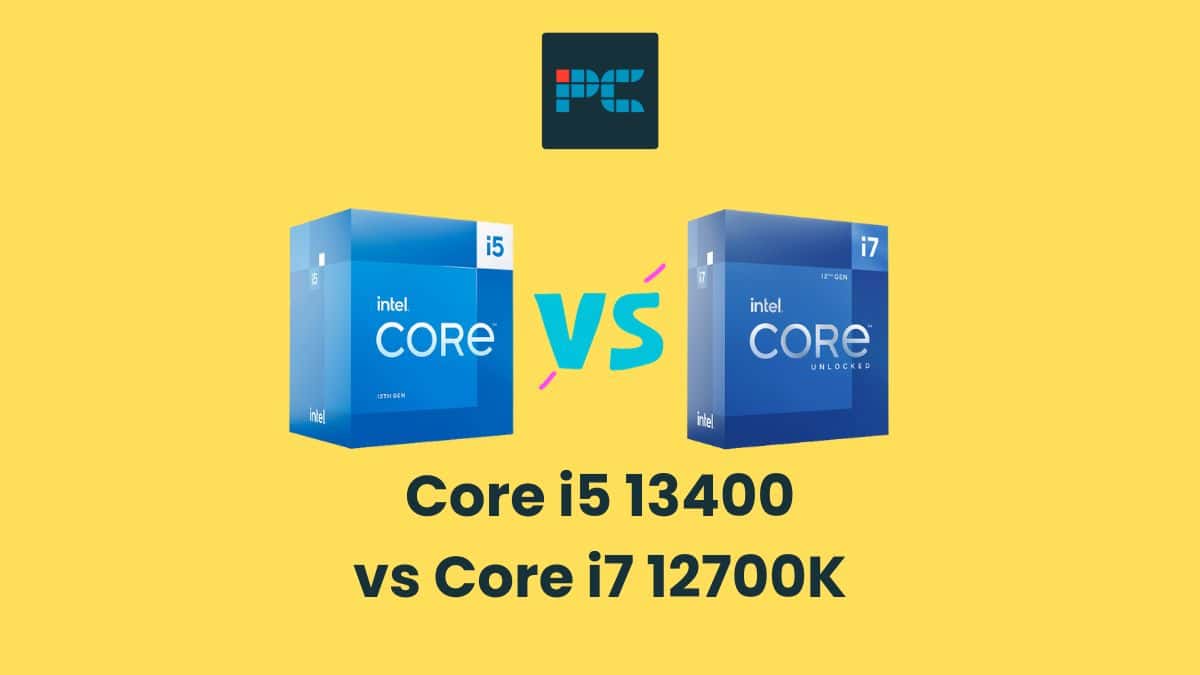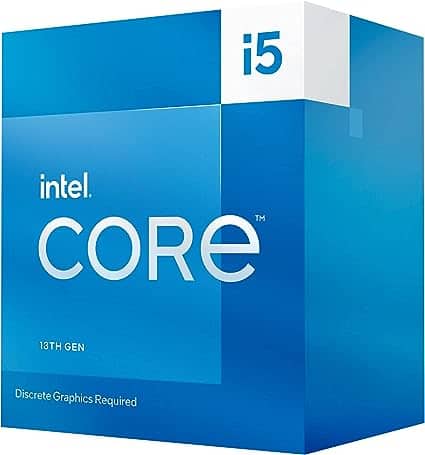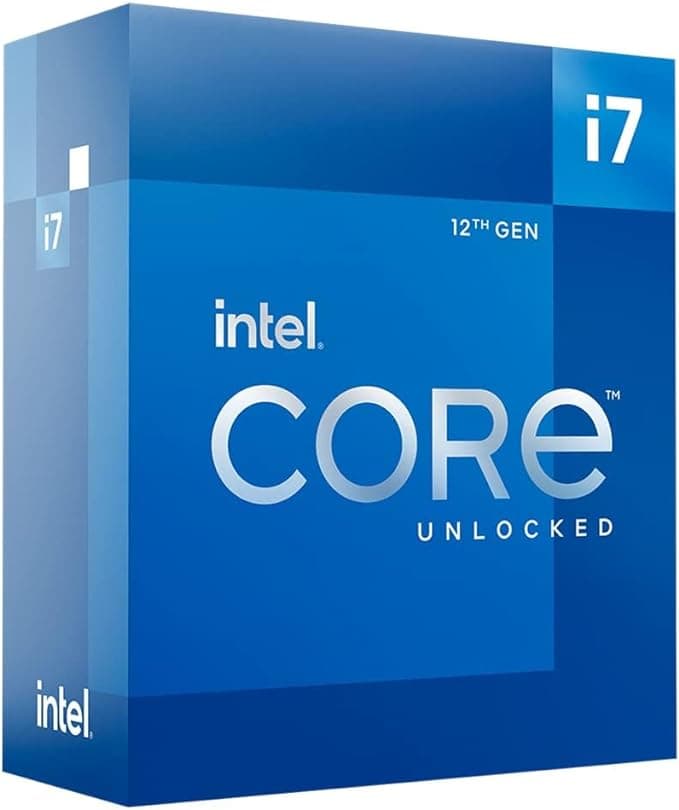Core i5 13400 vs Core i7 12700K – are they far apart?

Table of Contents
Intel processors have become a household name. It is all thanks to the company's aim to continue to push the boundaries of performance with its diverse range of CPUs. Two notable contenders in the mid-range and high-end segments are the Core i5 13400 and the Core i7 12700K. But which of these two should you choose? In this article, we will compare Core i5 13400 vs Core i7 12700K to help you make this decision.
Core i5 13400 vs Core i7 12700K specs comparison
Let's start this CPU comparison by viewing the similarities in technical details between the two chips. The Core i5 13400 and Core i7 12700K are built on Intel’s Alder Lake architecture. Moreover, both these processors utilize a 10nm fabrication process.
Prime Day is finally here! Find all the biggest tech and PC deals below.
- Sapphire 11348-03-20G Pulse AMD Radeon™ RX 9070 XT Was $779 Now $739
- AMD Ryzen 7 7800X3D 8-Core, 16-Thread Desktop Processor Was $449 Now $341
- ASUS RTX™ 5060 OC Edition Graphics Card Was $379 Now $339
- LG 77-Inch Class OLED evo AI 4K C5 Series Smart TV Was $3,696 Now $2,796
- Intel® Core™ i7-14700K New Gaming Desktop Was $320.99 Now $274
- Lexar 2TB NM1090 w/HeatSink SSD PCIe Gen5x4 NVMe M.2 Was $281.97 Now $214.98
- Apple Watch Series 10 GPS + Cellular 42mm case Smartwatch Was $499.99 Now $379.99
- ASUS ROG Strix G16 (2025) 16" FHD, RTX 5060 gaming laptop Was $1,499.99 Now $1,274.99
- Apple iPad mini (A17 Pro): Apple Intelligence Was $499.99 Now $379.99
*Prices and savings subject to change. Click through to get the current prices.
Both processors share a similar GPU architecture, with a base clock of 300 MHz. However, the Core i7 12700K has a slightly lower GPU boost clock at 1500 MHz compared to the 1550 MHz of the Core i5 13400, its predecessor. However, that's as far as the similarity between the two goes. Everything else, including the core counts, cache memory, etc., is different.
While the Core i5 13400 features 10 cores and 16 threads, the Core i7 12700K surpasses it with 12 CPU cores and 20 threads, thanks to new hybrid architecture. This significant difference in core count has implications for multitasking and parallel processing capabilities.
The Core i5 13400 incorporates 6x Raptor Cove performance and 4x Gracemont efficiency cores. In contrast, the Core i7 12700K boasts 8x Golden Cove performance cores and the same 4x Gracemont efficiency cores, further contributing to its processing power.
| Specs | Core i5 13400 | Core-i7 12700K |
|---|---|---|
| Architecture | Raptor Lake | Alder Lake |
| Fabrication process | 10 nm | 10 nm |
| Cores | 10 | 12 |
| Threads | 16 | 20 |
| Performance Cores | 6x Raptor Cove | 8x Golden Cove |
| Efficiency Cores | 4x Gracemont | 4x Gracemont |
| P-Core Base Frequency | 2.5 GHz | 3.6 GHz |
| P-Core Boost Frequency (Turbo) | 4.5 GHz | 4.9 GHz |
| E-Core Base Frequency | 1.8 GHz | 2.7 GHz |
| E-Core Boost Frequency (Turbo) | 3.4 GHz | 3.8 GHz |
| L3 Cache | 20 MB (shared) | 25 MB (shared) |
| L2 cache | 1280K (per core) | 12MB (shared) |
| TDP | 65 W | 125 W |
| Socket | LGA 1700 | LGA 1700 |
| GPU Base Clock | 300 MHz | 300 MHz |
| GPU Boost Clock | 1550 MHz | 1500 MHz |
| Shading Units | 192 | 256 |
| TMUs | 48 | 16 |
| ROPs | 24 | 8 |
| Memory Types | – DDR5-4800- DDR4-3200 | – DDR5-4800- DDR4-3200 |
| ECC Support | No | Yes |
| Price | $221 | $409 |
The Core i7 12700K holds a notable advantage in clock frequencies. Its P-Core base frequency starts at 3.6 GHz, with a turbo boost reaching 4.9 GHz. This makes for speedy in-game fps and minimizes latency. Meanwhile, the Core i5 13400 has a P-Core base clock frequency of 2.5 GHz, with a boost clock frequency capped at 4.5 GHz.
In terms of cache, the Core i7 12700K offers a larger shared L3 cache of 25 MB cache compared to the 20 MB of the Core i5 13400. The L2 cache is distributed differently, with the i5 featuring 1280K per core, while the i7 has a shared 12MB. They both have internal graphics (iGPU) but you’re better off buying a dedicated GPU to maximize performance.
Where thermal management is concerned, the i5-13400 has a TDP of 65W, whilst the i7-12700K boasts 125W – substantially higher, making it stronger when it comes to maximum power efficiency whilst not overheating.
Core i5 13400 vs Core i7 12700K performance
When it comes to real-world performance benchmarks, the Core i7 12700K clearly outshines the i5 13400. The additional cores and threads boost the working speed of a processor in the case of the i7. This makes it a powerhouse for demanding tasks such as video processing and editing, gaming, 3D rendering, and content creation. It is a significant performance improvement on its predecessor, and in terms of speed rank, it’s up there with some of the fastest around.
The higher clock speeds also contribute to faster single-threaded performance, benefiting tasks that rely on raw processing power. However, for typical consumers focused on mainstream applications and gaming, the Core i5 13400 still offers commendable performance at a more budget-friendly price point. It offers steady, reliable single-core performance.
Core i5 13400 vs Core i7 12700K price and value
While the Core i7 12700K commands a higher price at $409, its enhanced performance and additional features, such as ECC support, may justify the premium for users who demand top-tier performance. On the other hand, the Core i5 13400, priced for less money at $221, offers an appealing balance of performance and affordability. It might be the best value option for mainstream users and gamers.
Final verdict
The Intel Core i7 12700K and Core i5 13400 are certainly very far apart. Although Core i7 12700K is a 12th-generation CPU, it is from the higher-end family of Core i7. It outperforms Core i5 13400 in almost every aspect, whether specifications, performance, or value for money.
However, choosing between the Core i5 13400 and the Core i7 12700K ultimately depends on individual needs and budget constraints. The i7 12700K is a powerhouse for demanding workloads, catering to enthusiasts and professionals who require top-notch performance. Meanwhile, the i5 13400 provides a cost-effective solution for users with more modest computing needs, delivering a well-balanced performance at a superb value price point.



